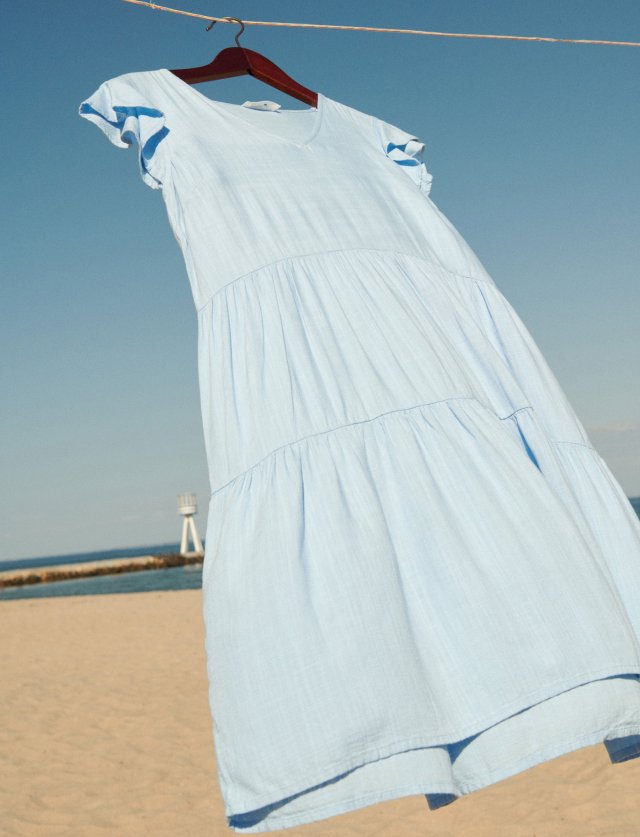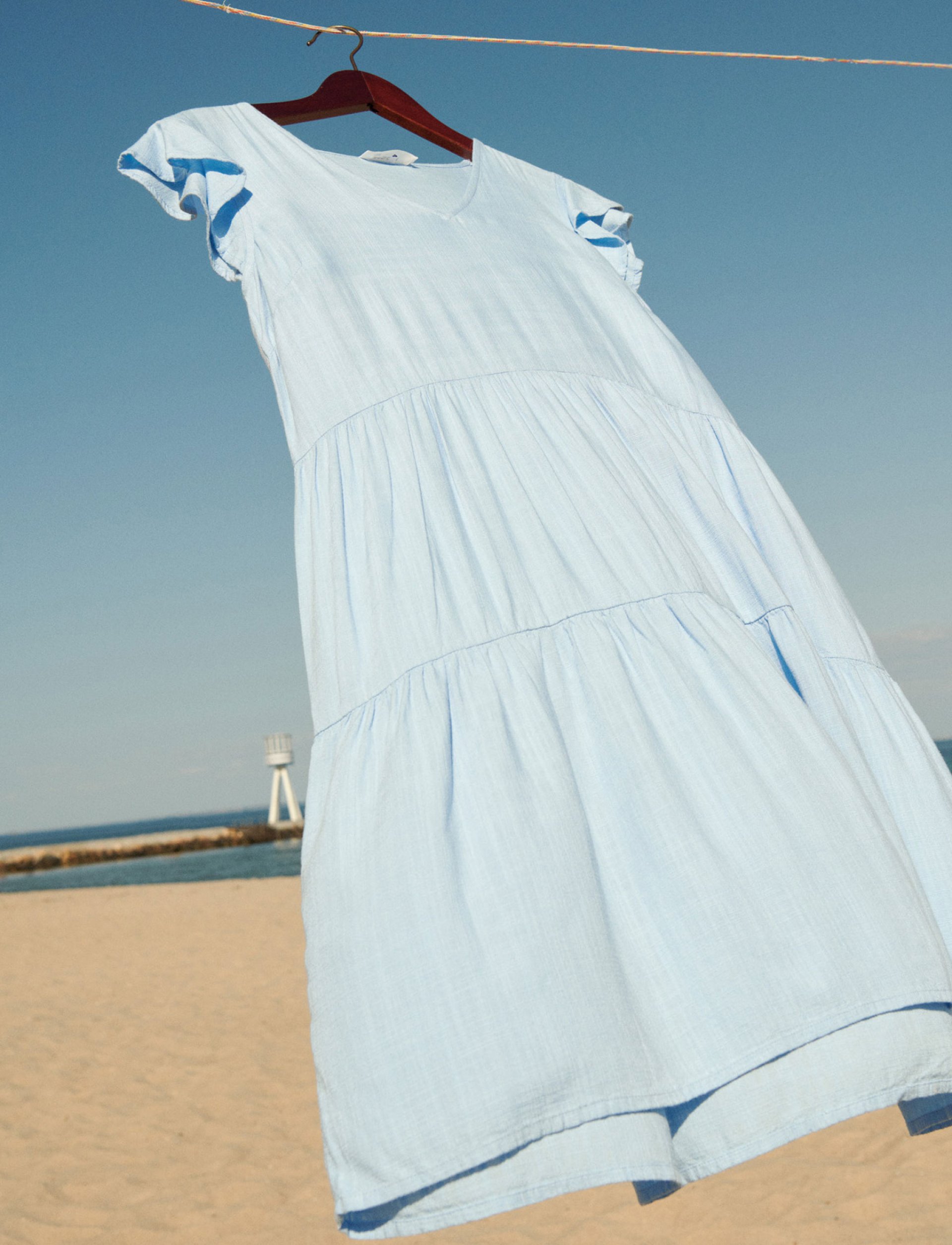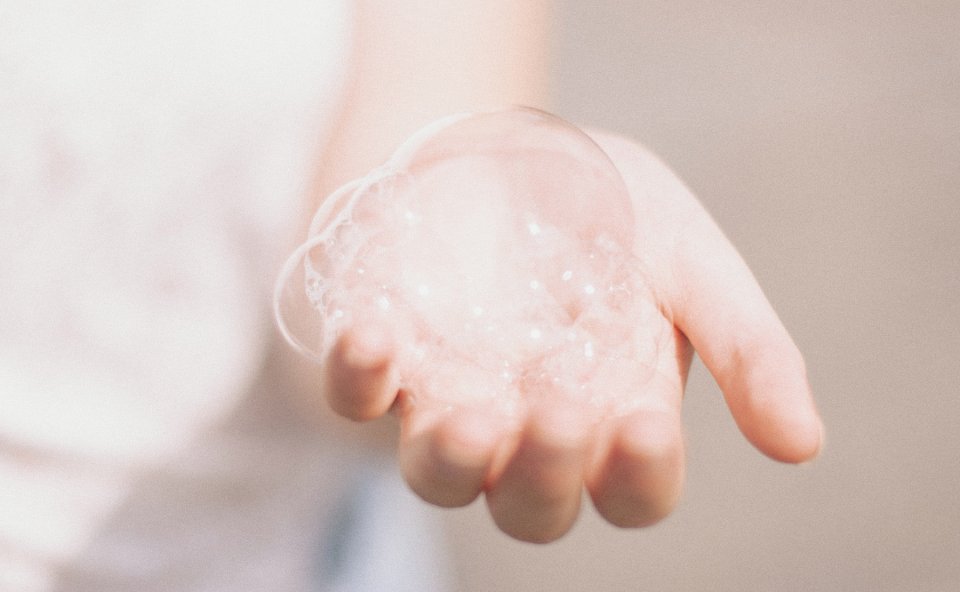Clevercare
We would like all our customers to embrace the environmentally friendly Clevercare system of caring for your clothes in the right way once they leave our stores. By adopting a few simple clothes care habits you can make a big difference.
Join the change: reduce your climate impact, and extend the life of your clothes.
While the fashion industry is responsible for a large amount of pollution, a considerable part of a garment's life cycle pollution actually happens in our homes due to things such as frequent washing at unnecessarily high temperatures, ironing and tumble drying.
We strongly believe our environmental responsibilities don't end once our clothes leave our stores, which is why MSCH COPENHAGEN has added the Clevercare logo to our care labels to remind us all to wash our clothes less (airing and brushing are great ways to refresh your garments, as is spot cleaning) along with washing at lower temperatures, air drying and avoiding ironing where possible.
Remember, the longer you use a piece of clothing, the more sustainable it becomes. Washing your clothes less also extends the life of a garment by reducing the amount of wear and tear. Read more about Clevercare here.
Washing
Washing
Don't wash your clothes too often. Remove stains manually, and air the clothes to freshen up after each use. Several studies indicate that garments are often washed more frequently than necessary. By reducing the number of times you wash your garments you can actively help to reduce your carbon footprint.
Drying
Drying
Natural drying is energy free. By hang drying your laundry you save energy, and your clothes will stay in shape and even last longer too.
Dry Cleaning
Dry Cleaning
How does your professional cleaner contribute to sustainability and environmental protection? Professional cleaning – when recommended – is crucial to maintain the quality of your product and can extend its lifespan.
CERTIFIED BY ECOCERT GREENLIFE, 249809
TEXTILEEXCHANGE.ORG/STANDARDS
TEXTILEEXCHANGE.ORG/STANDARDS










